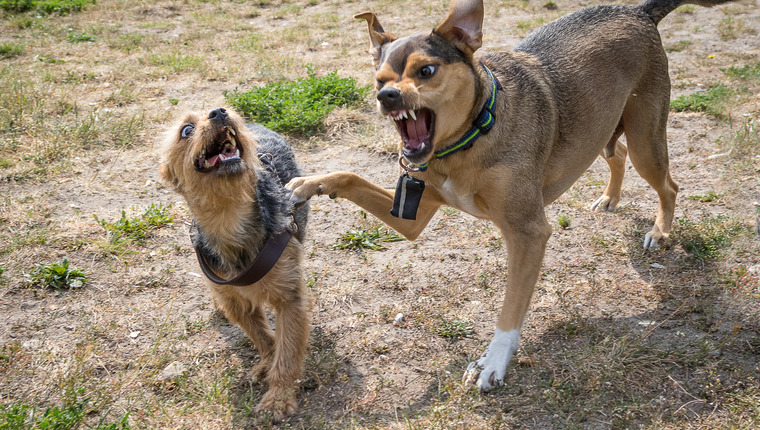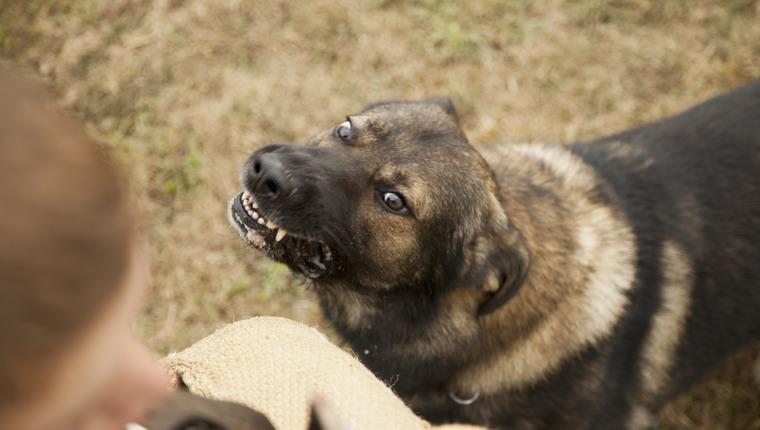
For some time now, vets have argued that—contrary to popular belief—your dog’s breed has little to do with their aggression levels. Now, a new study has shown that your relationship with your dogs might make them more aggressive than you’d think.
What Exactly Makes Dogs More Aggressive?
The study, published in Applied Animal Behaviour Science, comes from researchers at the University of São Paulo in Brazil. “Pet dog aggression concerns both dogs and [parents’] wellbeing and their relationship,” says the study. “Aggressive behaviors often fall under the category of ‘undesired’ behaviors since they are mostly associated with negative contexts…However, aggression remains an important component of dogs’ behavioral development.” As such, researchers say we should understand “ ow, why, and when [aggression] occurs in pet dogs”.
With that goal in mind, researchers compiled various breeds of dogs, including mixed breeds. Altogether, the group numbered 665 dogs. According to Maria Fernanda Ziegler from the Sao Paulo Research Foundation (FAPESP), the study focused on “the correlations between aggressiveness and morphological, environmental, and social factors” in the studied canines.
Interestingly, the scientists’ surveys found that certain physical traits such as weight did influence aggressiveness, but there was something else as well. Amazingly, researchers found that social and environmental factors were better predictors of canine aggression. “The results highlight something we’ve been studying for some time: behavior emerges from interaction[sic] between the animal and its context,” said author and ethologist Briseida de Resende.
For example, researchers found that parents who walked their dogs every day generally had fewer aggression issues. Furthermore, the study suggested that “heavier dogs tend to be less disobedient than lighter pets”. Significantly, the study also claimed that “dogs owned by women bark less at strangers”. Lastly, the study’s results suggested that short-snouted breeds—Pugs, Bulldogs, and Shih Tzus—have worse behavior than medium and long-snouted dogs.
Dog Personalities—Like Humans—Are a Complex Relationship
The results, gathered through a series of surveys given to dog parents, were in line with the researchers’ hypothesis. Namely, “behavior is not only learned or influenced by genetics but also the result of constant interaction with the environment”. However, researchers stress that the correlations they found are not cause-and-effect. “We found relationships, but it’s impossible to say which comes first,” said Flávio Ayrosa, another author.
Still, the study provides convincing evidence that upsets the longstanding idea that the breed defines the dog. With this study—the first of its kind in Brazil—researchers are beginning to uncover the complexities of our favorite animals’ personalities.









